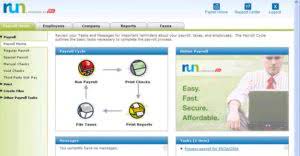
This choice In-House Accounting vs Outsourcing affects your finances, costs, and how efficiently your business runs. Keep core accounting functions in-house while outsourcing specialized tasks like tax preparation or financial analysis. Managing finances is one of the most critical aspects of running a successful business.

Marginal Tax Rates in Canada

In house accounting has been the standard approach in business for quite some time. Employees can access sensitive information, which can tempt some to commit dishonest acts. For instance, an employee might manipulate financial records for personal gain. Some outsourcing agreements may come with hidden fees or extra costs cash flow for services not included in the initial contract. Always read the fine print and ask questions to avoid unexpected expenses. Time zone differences and language issues might slow down collaboration and decision-making.
- Having worked with over 1,100 firms, TOA Global provides top-tier accountants with excellent academic backgrounds and diverse certifications.
- Let’s explore how outsourcing can transform financial management and why it’s often the smarter choice.
- In-house accountants can create tailored solutions that fit your unique business requirements.
- In addition, external partners come equipped with advanced expertise, minimizing the risk of costly errors or penalties.
- Outsourced accounting teams don’t just manage tasks—they offer financial management tips that improve performance over time.
- And data analytics, businesses can strategically leverage outsourced accounting to drive growth, enhance decision-making, and improve overall financial performance.
Long-Term Strategic Goals
- Outsourcing offers agility to expand and contract with market demands, while an in-house team might provide a stable foundation for building long-term client trust and loyalty.
- While there are many benefits of hiring an accountant, it’s important to know that there’s no one-size-fits-all approach for every business.
- For efficiency and saving money, some find outsourced accounting works best.
- Businesses can rely on up-to-date financial data to guide strategies and achieve long-term goals.
- Dave Schnitt, CEO of IQ BackOffice, discusses the services they provide and the value they add to their clients.
- With the right partner, you can rest assured that your accounting processes are handled by experienced professionals with specialized skills.
By leveraging both the expertise and technology of outsourcing partners, your business can focus more on core operations and gain a competitive edge against competitors. At 8020, I’ve worked alongside organizations to help them implement effective systems tailored to their needs. Our team of experienced consultants integrates seamlessly with your operations, ensuring compliance, streamlining processes, and enhancing financial outcomes.

How Do In-House Accounting Costs Compare to Outsourced Accounting?
Before we look at the benefits of both in house and outsourced accounting, let’s first discuss the fundamental difference between the two. Below, we’ve outlined some key differences between in house accounting vs. outsourcing to help you make an informed decision. Differences in business culture Accounting for Churches between your company and the outsourcing provider can lead to misunderstandings. This can affect the efficiency of your partnership and may require extra effort to align your goals and practices.
- A 360 solution to find, hire, onboard, pay, and retain top Latin American talent.
- With fractional accounting leadership, you gain insights from experts who understand strategy, reporting, and compliance.
- Company B valued the in-house team’s expertise and believed that their in-depth knowledge contributed significantly to the company’s strategic growth.
- Outsourcing can handle these efficiently, bringing in expertise that might be scarce locally.
The accountant in this situation does not act as a mere number cruncher; he assumes a strategic partner role that is intimately acquainted with the nuances of the operations. This level of familiarity fosters trust, allowing the owner to confidently delegate decisions as their internal accounting records transactions and steers finances through financial viability. Having an extra set of trained eyes on the financial workings of your business will virtually eliminate the risk of fraud in your business. Third-party accounting companies hire employees with advanced knowledge, skills, and experience across various areas of finance. They also require frequent trainings to keep their accountants up-to-speed on the latest compliance regulations and reporting tools.
- If rapid growth is anticipated, outsourced accounting can provide the scalability needed to support expansion.
- Choosing the right accounting approach can significantly affect your business’s efficiency and growth.
- Consider the total cost of in-house accounting (salaries, benefits, software, training) versus the fees for outsourced services.
- For example, the average salary for an accountant can be around $52,233, which can quickly add up.
- However, for businesses that need specialized tax strategy, compliance, or financial forecasting services, outsourcing is often the better option.
- The availability of internal resources and expertise can influence the decision.

